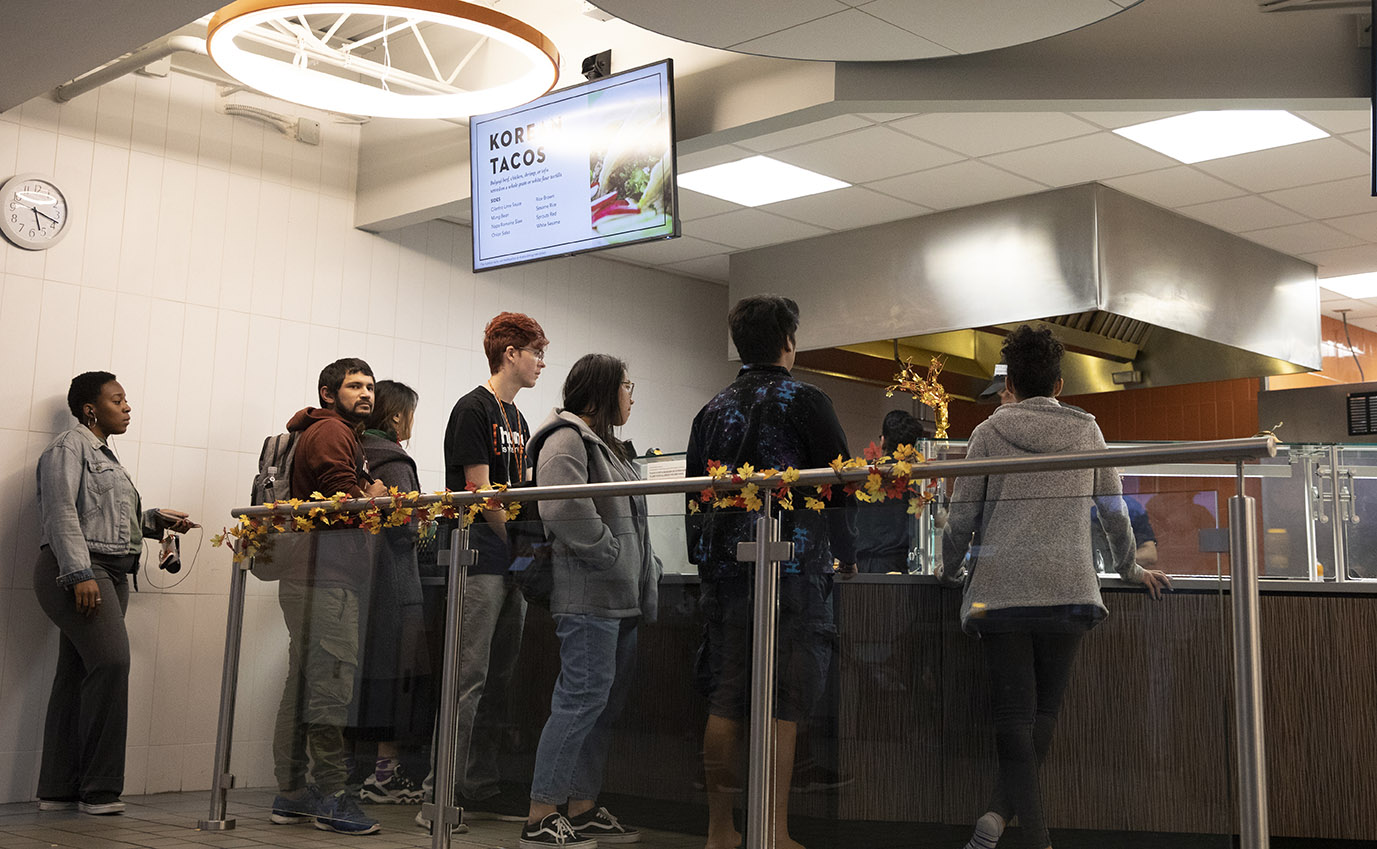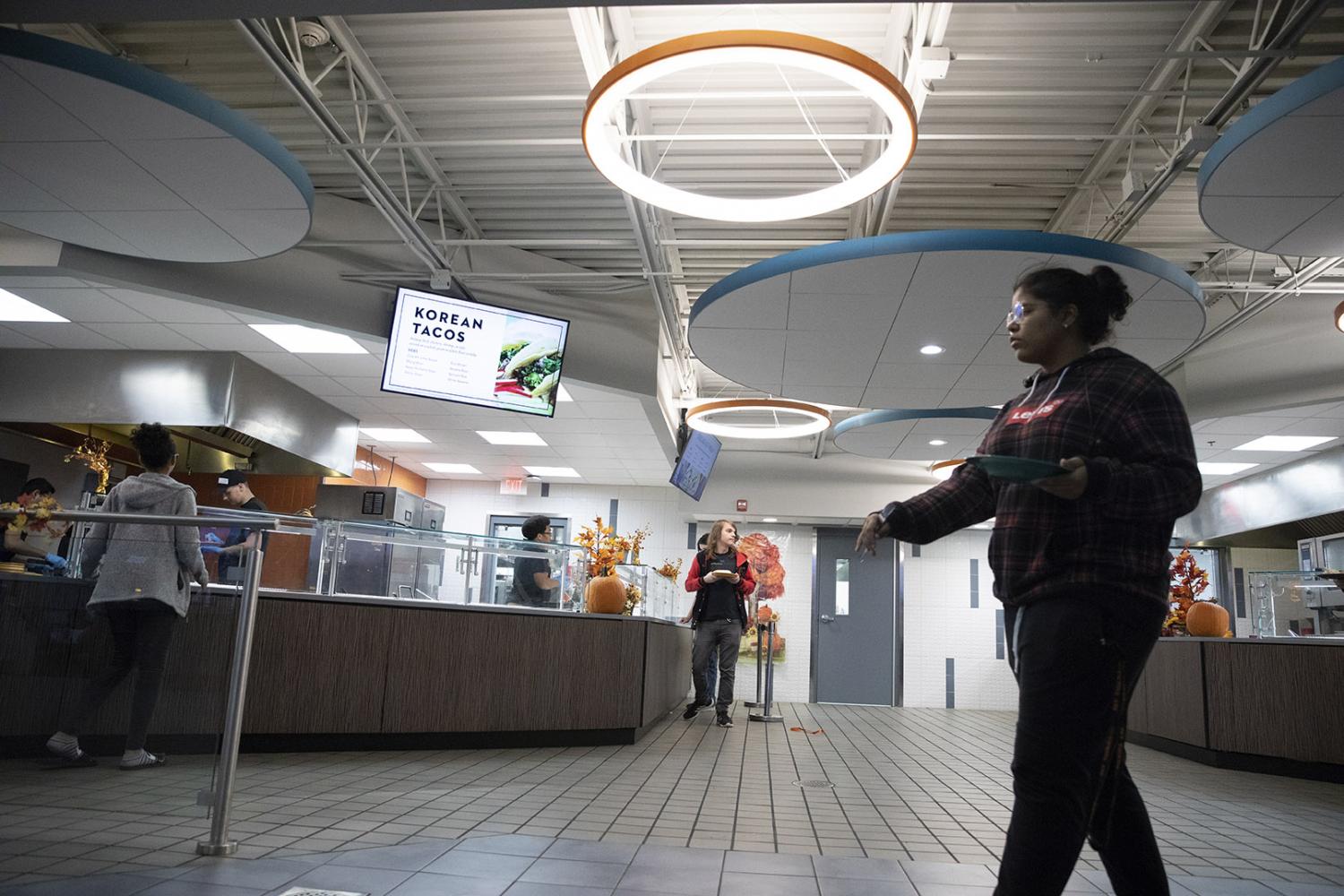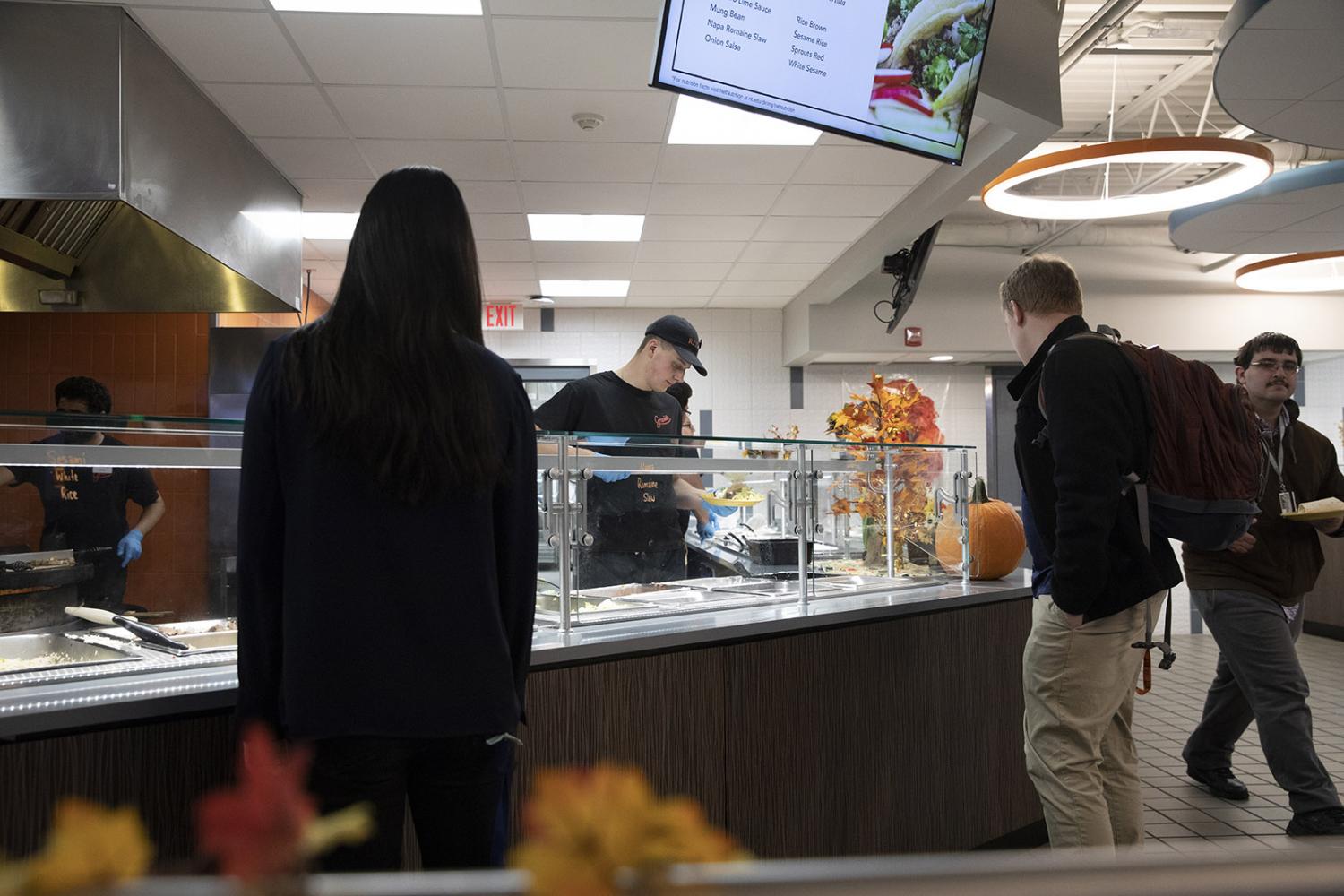Goodness Gracie's: an Understaffing Issue
by Jess Sides | published Oct. 22nd, 2019
The Issue
It’s fairly common knowledge that Gracie’s was closed at the end of the spring semester and all through the summer due to renovations. Because of this, many people working at Gracie’s sought other employment and did not return at the beginning of this semester when it reopened. This has caused severe understaffing.
Dominic Calabria, fourth year Software Engineering major, is a student manager at Gracie’s. He expressed the severity of the situation.
“Forty-five to 50 students are eligible to close dinner shift [at Gracie’s]. Some days we work with less than 12,” he explained.
Grey Olsen, second year Web and Mobile Computing major, is a kitchen manager at Gracie’s. He mentioned that on some nights they have even had single digits on this closing shift.
In addition to this issue, the food stations that often require two or three people end up having one or even less people running it — some students managing multiple stations at the same time. This leads to longer lines and subpar quality of food.
“I can’t give the quality or the quantity of food that I want to,” Olsen said. “I feel bad.”
Gracie’s often runs out of food because the number of workers can’t keep up with demand. They often have to close stations or not open them at all. Calabria mentioned that they haven’t had the sandwich station open at any shift he’s been to this semester.
On top of this, the dining area is also frequently messy because they don’t have the workers to spare who could clean.
“[Workers are] doing the jobs of two to three students easily every night. It’s very stressful,” Calabria said.
This then creates an issue with transportation. Some of the workers don’t have cars and take the bus back to their apartments. The rustic village bus in particular only runs until 9:05 p.m. on weekends. Despite Gracie’s closing at 8 p.m., workers are staying there as late as 11 p.m. on some evenings.
For Harrison Leong, seventh year Computing and Information Technologies major and a student manager at Gracie’s, this has become quite the annoyance.
“It forces me to leave early. Now I leave around 8:40 p.m., but everyone else has to stick around,” he said.
Leong mentioned that his other options are Uber and Lyft, but that students should not have to spend the money in which they just made.
Impact
The issue of Gracie’s goes past being understaffed. Students are working hours detrimental to their academics. Their grades are dropping because they are working hours in which they should be studying or sleeping.
"It makes me feel uncomfortable that I am relieved not to work there anymore."
For Olsen, he’s afraid to quit as to not leave Gracie’s in an even worse position. However, for others, leaving has become the only option.
“I had to quit because my grades were slipping,” explained Calabria. “I can’t keep up because of how much time I spend [at Gracie’s] ... I couldn’t study for exams or work on projects.”
Some international students are working so many hours that they are at risk of losing their visas. Students on an international visa can't work more than six hours without a break, and they can’t work more than 20 hours a week.
Calabria explained that if international students are reaching 20 hours, they’ll have to leave work before everything is done for closing, which then leaves those left in an even more difficult position.
“It leaves our groups more burdened. We have less people to do the work,” Leong added.
Students not on international visa should also not be expected to go over 20 hours per week either as it is law, but that hasn’t been the case. Olsen, Calabria and Leong have all expressed that they consistently have worked close to or over 20 hours per week. Leong in particular said he worked 56 hours during the last pay period when the max is 40 hours.
Call for Change
Calabria mentioned they’ve been talking with upper management about the issue for some time, but they've neglected the matter. Management claimed that the issue would improve, but it became hard to believe, according to Calabria. Eventually, students began taking action for themselves.
The students approached Reporter asking for us to cover the effort. They’ve met with Student Government (SG) and created a PawPrints petition reaching almost 600 signatures. They also met with Kory Samuels, executive director of RIT Dining, and Dean Engdahl, director of Operations.
The petition Calabria created was a call for a wage increase. Since Gracie’s workers are the ones dealing with this issue, it makes sense that they would ask for an incentive to stick around. Calabria said it would significantly “boost morale” in the workplace.
Leong agrees with the petition, but emphasized the true issue.
“The lack of labor is the real issue ... I’m still only one person — even with more money, we need more hands,” he said.
The workers have also been putting in extra effort outside of work to try and recruit people. They’ve made many Gracie’s specific hiring posters and hung them in the tunnels. They’ve also turned popular songs such as “Allstar,” the “Mii Song” and “We Will Rock You” into Gracie’s-themed messages. They’ve changed the lyrics of the song to let people know they’re hiring and to try and entice them with the benefits of being a Gracie’s employee.
There have been talks of a strike if the issue is not resolved in a timely manner. The students believe this is a fair request, considering it’s Week Eight of the semester and the problem has not yet been rectified. However, the students seem to be a little more at ease now that they’ve spoken with SG and upper management. They’ve assured the students that they’re doing all they can as quick as they can.
“After talking with Dining services, they care about it as much as we do. They spent two million dollars on renovations,” Leong explained. “They’re sad this isn’t working. ... The conditions don’t warrant a strike right now. ... We’re all on the same side.”
However, the workers believe there is still more that management could be doing.
“Gracie’s should be communicating better with the staff. Be honest with us in how it’s going,” Calabria said.
Calabria also suggested that Samuels should come and see a closing shift to know just how bad the issue is. His last suggestion was to show the students that they’re trying.
“Show students they care and appreciate the work that they’re doing. This could come in a wage increase or some sort of back pay,” Calabria said. “Some sort of incentive to keep them going.”
This may pose issues though as Housing and Dining do not decide wages, so this prospect might be out of reach. Leong had some other ideas.
“Go back to our regular closing hours of 7:30 and 7,” Leong said. “They’ll be people missing out on us, but our closing hours are really bad. It would really help morale.”
Getting Involved
If getting hired at Gracie’s is something that interests you, the process is relatively painless.
“Typically anyone who applies will get hired,” Calabria said.
You bring your resume into Gracie’s, speak with a supervisor and you’re hired. Calabria described Gracie’s as a “fun place to work.”
“The student managers are great, the people are great. I’ve made good friends there,” he said.
In addition to or instead of applying to work, you can attend SG committee meetings in the SG office from 9 a.m to 10 a.m. on Mondays to talk more about the issue.
For Students
The workers hope that students who eat at Gracie’s can understand the position that they’re in.
“We shouldn’t be making excuses for our service, but I want to show [students] that there is some justification,” Leong said.
Olsen had some points to add.
“There’s a stigma at Gracie’s, but we work hard. We have professional chefs with years of schooling, and we are doing our best with what we’re given,” he said.
According to Calabria, the point of the renovations was to increase customer satisfaction. They made modifications to the menu and added new stations. However, it’s hard to enforce these new advancements when they don’t have the workforce they need.
“Students need to be patient with us. There are not enough resources to show off the changes we are working on,” Calabria explained. “It’s upsetting because students are paying a lot to be here and eat here ... I enjoyed working at Gracie’s. It makes me feel uncomfortable that I’m relieved to not work there anymore.”





